Carl E. Olson's Blog, page 240
February 9, 2012
Two New American Saints, Three Notable Firsts

Two New American Saints, Three Notable Firsts | Brian O'Neel | Catholic World Report
Blessed Marianne Cope and Blessed Kateri Tekakwitha will be canonized in October
On Saturday, December 19, 2011, the Holy See announced His Holiness Pope Benedict XVI had approved the Congregation for the Causes of Saints' findings that miracles attributed to seven blesseds were authentic. This clears the path for their canonization and thus the recognition of these men and women as saints of the universal Church.
Of course, while the creation of new saints is important and exciting, it is nonetheless true that reviewing and, where appropriate, approving the Congregation's findings is a normal part of the Pope's duties. It happens several times each year.
This time was especially noteworthy, however, because of several reasons.
For starters, it was the first time the list had more Americans on it than those from other nations.
Second, it marked the first time the list had more than one American (two people and both New Yorkers, no less).
And, finally, it marked the first time the Church had marked a Native American for canonization.
The Americans in question are Bl. Marianne Cope and Bl. Kateri Tekakwitha, the better known of the two. As just one example of the fervor with which the news out of Rome was met, "The bells have been ringing here all morning," said Rev. Mr. Ron Boyer, deacon at the parish in Kahnawake, Quebec, Canada, the village where Bl. Kateri died.
Just who were these remarkable women?
20% off New DVDs and 35% off e-Books from Ignatius Press

20% off New DVDs and 35% off e-Books!
Offer ends Tuesday February 14th, 2012 at 12:00 midnight EST. These prices are available online only through Ignatius.com
New DVDs are now available from Ignatius Press! The Way, featuring Martin Sheen, is an inspirational and powerful film about family, friends and faith and the challenges we face in the world today. Inspired by actual events, There be Dragons is a story of passion, faith and betrayal. Courageous (from the creators of Fireproof) is a heartfelt, action-packed story about four men and their calling to serve and protect. Choose from any of these great new movies, including those listed below, and get 20% off! Be sure to check out our selection of ebooks all at 35% off. See the entire listing of available e-books here.
 There Be Dragons
There Be Dragons
Dougray Scott leads an acclaimed cast in Oscar® Nominee writer/director Roland Joffé's epic story of passion, faith and betrayal. When journalist Robert Torres (Scott) is assigned to write a book about Josemaría Escrivá (Charlie Cox), the controversial founder of Opus Dei, he hopes it will bring him closer to his father (Wes Bentley), Escrivá's chilhood friend. As Torres uncovers more about his father's past, he learns dark secrets that will change his world forever. Inspired by actual events and featuring Geraldine Chaplin and Olga Kurylenko, There Be Dragons is a "rousing epic" and a "stirring vision of virtue" (Colin Covert, Star Tribune). Also available on Blu-Ray.
 Courageous
Courageous
Four men, one calling: To serve and protect. As law enforcement officers, they are confident and focused, standing up to the worst the streets can offer. Yet at the end of the day, they face a challenge they're ill prepared to tackle: fatherhood. When tragedy strikes home, these men are left wrestling with their hopes, their fears, their faith, and their fathering. Sherwood Pictures, creators of Fireproof, returns with this heartfelt, action-packed story. Protecting the streets is second nature to these law enforcement officers. Raising their children in a God-honoring way? That takes courage. Also available on Blu-Ray.
 The Way
The Way
A powerful and inspirational story about family, friends, faith and the challenges we face navigating this complicated world. Martin Sheen plays Tom, an American doctor who comes to France to collect the remains of his adult son (Emilio Estevez), killed in a storm in the Pyrenees while walking the famous Camino de Santiago, "The Way of St. James." Tom decides to embark on the historical pilgrimage to honor his son's desire to finish the journey, unprepared for the profound impact the journey will have on him. He meets other pilgrims from around the world with their own issues and looking for greater meaning in their lives. From the unexpected, moving and amusing experiences along "The Way," and especially when he reaches the pilgrim's destination, the beautiful Shrine of St. James the Apostle, Tom learns what it means to be fully human again. As he deals with his unresolved relationship with his son, he discovers the difference between "the life we live and the life we choose." With beautiful cinematography, a lovely music score and outstanding acting performances by all the main characters, this is a film and story that stays with you, a movie that many will want to watch more than once. Also available on Blu-Ray.
 Life Is Beautiful
Life Is Beautiful
An inspired motion picture masterpiece, Life is Beautiful was an international sensation and the most successful foreign language film in U.S. history. It was nominated for 7 Academy Awards-winning 3 Oscars, including one for Best Actor Robert Benigni. In this extraordinary tale, Guido (Benigni)-a charming but bumbling waiter who's gifted with a colorful imagination and an irresistible sense of humor-has won the heart of the woman he loves and created a beautiful life for his young family. But then, that life is threatened by World War II ... and Guido must rely on those very same strengths to save his beloved wife and son from an unthinkable fate! Also available on Blu-Ray.
The Pistol
This biographical drama, focusing on Pete Maravich's freshman year in high school, is the inspirational story of how one father's love and support had a profound impact on his son's life. It resulted in Pete becoming one of the greatest, and most entertaining, professional basketball players of all time, and the youngest inductee into the Basketball Hall of Fame. Pete showed how family, faith, hard work, and a whole lot of heart could make anything possible
A Third Testament
Malcolm Muggeridge
This is the highly praised television documentary presented by noted author and Christian apologist, Malcolm Muggeridge (1903-1990). This revealing documentary profiles six famous and unique men whose search for God forms a kind of modern testament to the reality of Christ. The six men include Saint Augustine, Blaise Pascal, William Blake, Soren Kierkegaard, Leo Tolstoy and Dietrich Bonhoeffer.
Metamorphosis
The Beauty and Design of Buttterflies
Throughout history butterflies have fascinated artists and philosophers, scientists and schoolchildren with their profound mystery and beauty. In Metamorphosis you will explore their remarkable world as few ever have before. Spectacular photography, computer animation and magnetic resonance imaging open once hidden doors to every stage of a butterfly's life-cycle. Also available on Blu-Ray.
The Testament of Mother Teresa
This rare interview captures on film one of the most beloved women of our time, and has never been available before on DVD. Although there are many biographies on her, the world actually knows very little about Mother Teresa. Apart from a few published speeches and selected prayers, she has not bequeathed any writings. Director Marcel Bauer had to wait many years before the Mother reluctantly gave him permission for an interview. This program is the film record of that historic interview, filmed just months before Mother Teresa's death, which contains her thoughts and views on many important subjects.
The Intelligent Design Collection
In 1999, Illustra Media began a project that would span more than nine years, four continents, and thousands of hours of research, writing, editing, computer animation, and location photography. The objective was to create a documentary trilogy that would present the scientific case for intelligent design. These critically-acclaimed documentaries were broadcast on PBS and translated into more than 20 languages. They have inspired and educated millions and fueled an international debate on the origin of life. Now, on the 200th anniversary of Charles Darwin's birth, Illustra Media is thrilled to announce the completion of the Intelligent Design Trilogy.
e-Books
 Christianity and Democracy
Christianity and Democracy
The Rights of Man and The Natural Law
Jacques Maritain
As this important work reveals, the philosophy of Maritain on natural law and human rights is complemented by and can only be properly understood in the light of his teaching on Christianity and democracy and their relationship. Maritain shows that Christianity cannot be made subservient to any political form or regime, that democracy is linked to Christianity, and that in order for democracy to thrive, it must reflect certain values historically derived from the Gospel. Also available in Paperback.
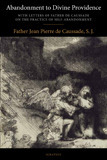 Abandonment to Divine Providence
Abandonment to Divine Providence
With Letters of Father de Caussade on the Practice of Self-Abandonment
Jean-Pierre de Caussade, S.J.
This special volume of the famous spiritual treatise also includes the many insightful letters of Father de Caussade on the practice of self-abandonment. These numerous letters provide a great additional source of wisdom and practical guidance for how to grow in abandonment and to deepen our union with God in our daily lives. Also available in Paperback.
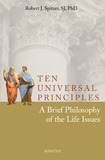 Ten Universal Principles
Ten Universal Principles
A Brief Philosophy of the Life Issues
Fr. Robert Spitzer, SJ
In Ten Universal Principles: A Brief Philosophy of the Life Issues, Jesuit Father Robert Spitzer sets out, in a brief, yet highly-readable and lucid style, ten basic principles that must govern the reasonable person's thinking and acting about life issues. Also available in Paperback.
Father Elijah
An Apocalypse
Michael O'Brien
Michael O'Brien presents a thrilling apocalyptic novel about the condition of the Roman Catholic Church at the end of time. It explores the state of the modern world, and the strengths and weaknesses of the contemporary religious scene, by taking his central character, Father Elijah Schäfer, a Carmelite priest, on a secret mission for the Vatican which embroils him in a series of crises and subterfuges affecting the ultimate destiny of the Church. Also available in Paperback.
Shadow of His Wings
The True Story of Fr. Gereon Goldmann
Fr. Gereon Goldmann
Here is the astonishing true story of the harrowing experiences of a young German seminarian drafted into Hitler's dreaded SS at the onset of World War II. Without betraying his Christian ideals, against all odds, and in the face of Evil, Gereon Goldmann was able to complete his priestly training, be ordained, and secretly minister to German Catholic soldiers and innocent civilian victims caught up in the horrors of war. How it all came to pass will astound you. Also available in Paperback.
An Invitation to Faith
An A to Z Primer on the Thought of Pope Benedict XVI
Pope Benedict XVI
With strong words, Benedict XVI invites us to place God at the center of our lives. Thus, this book is a selection of key words from the teachings of the Holy Father since he began his Pontificate, presented in alphabetical order. Also available in Hardcover.
Great Expectations
Ignatius Critical Editions
Charles Dickens
Pope John Paul II described Dickens' books as "filled with love for the poor and a sense of social regeneration . . . warm with imagination and humanity". Such true charity permeates Dickens' novels and ultimately drives the characters either to choose regeneration or risk disintegration. In Great Expectations, Pip—symbolic of the pilgrim convert—gains both improved fortunes and a growth in wisdom, but as he acquires the latter, he must relinquish the former—ending with a wealth of profound goodness, not of worldly goods. Also available in Paperback.
Twenty-first Century Recusants
By Matthew Cullinan Hoffman
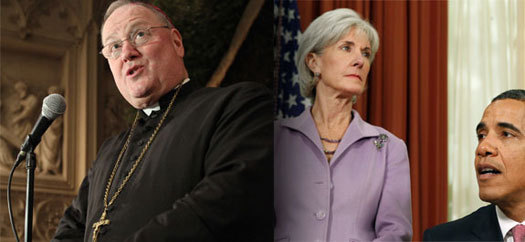
Intentionally or not, the Obama administration's contraceptive mandate smacks of the methods established by England's Queen Elizabeth against Catholic "recusants," who refused to participate in the worship services of the Anglican Church during the late 16th century. Read the entire article here.
For Additional Sale Items Click HERE!
Items are not sold on approval.
Periodically we make available -- only to you, our valued repeat customers -- special offers which are not available to the general public. We offer these discounted prices as our gift to those who help us by using Ignatius.com. Please do not ask for retroactive price consideration. We cannot accommodate those requests. Many thanks.
Quote of the Day (from 1985)
Fr. Z. shared this in a recent post, and it's worth another reposting:
The now dominant mentality attacks the very foundations of the morality of the Church, which, as I have already said, if she remains true to herself risks appearing like an anachronistic construct, a bothersome, alien body. Thus the moral theologians of the Western Hemisphere, in their efforts to still remain "credible" in our society, find themselves facing a difficult alternative: it seems to them that they must choose between opposing modern society and opposing the Magisterium.
The number of those who prefer the latter type of opposition is larger or smaller depending on how the question is posed: consequently they set out on a search for theories and systems that allow compromises between Catholicism and current conceptions. But this growing difference between the Magisterium and the "new" moral theologies leads to unforeseeable consequences, also precisely for the reason that the Church with her schools and her hospitals still occupies an important social role (especially in America). Thus we stand before the difficult alternative: either the Church finds an understanding, a compromise with the values propounded by society which she wants to continue to serve, or she decides to remain faithful to her own values (and in the Church's view these are the values that protect man in his deepest needs) as the result of which she finds herself on the margin of society.
— Joseph Cardinal Ratzinger (interviewed by Vittorio Messori), The Ratzinger Report (Ignatius Press, 1985), p. 86. A number of other, related quotes from the book can be found here.
"Pope John Paul II, Humanae Vitae, and the Theology of the Body"
From the HPR article by that title, written by Charles W. Norris, M.D.:
The question is: What has the "Sexual Revolution" wrought? I would suggest it encouraged: infidelity, increasing divorce rates, increased out-of-wedlock pregnancy, pornography, blatant homosexuality, AIDS, and massive multi-billion dollar abortion and contraception industries.
In 1968, Pope Paul VI issued his most famous encyclical, Humanae Vitae. In 1960, the "pill" had become available, raising the expectations of many that a change in Church teaching would follow. Owing to the immediate, vocal and vicious dissent which greeted the encyclical, I believe that the Catholic Church lost the opportunity of the ages. In 1979, John Paul II introduced, over four years, his series on the "theology of the body." Pope John Paul II presented his catecheses on Humanae Vitae (sessions 118 through 133) from July 11 through November 28, 1984. These sessions—an integral part of his presentation on the theology of the body—while delivered last, brought about a more clear, and reasoned, teaching of this beautiful, but rejected, encyclical, Humane Vitae, which addresses itself to the subject of human love, conjugal morality and spirituality.
I will limit my discussion here to the section of John Paul II's catechesis, referring to "the Redemption of the Body and the Sacramentality of Marriage". I believe the Pope's presentation primarily reflects the constant teaching of the Magisterium of the Catholic Church, willed by God, which stresses "the inseparable connection between the unitive and procreative meanings of the conjugal act, which are unable to be broken by man on his own initiative" (HV 12). This teaching thus becomes "an indispensable condition for acting in the truth, and for behaving in conformity, with the values of the moral norm….according to laws inscribed in the very being of man and woman" (HV 12), that is, the very nature of conjugal relations. Furthermore, Paul VI asserted: "We believe that the human beings of our day are particularly capable of seeing the deeply reasonable and human character of this fundamental principal" (HV 12), or, the right understanding of the innermost structure of the conjugal act. This teaching is not only a part of the natural law, but also part of the moral order, revealed by God. For this reason, I believe it is important for all Catholics—and, especially Catholic theologians—to reread Humanae Vitae in order to better understand its moral teaching.
Fr. Barron: "The secularist state wants Catholicism off the public stage..."
... and relegated to a private realm where it cannot interfere with secularism's totalitarian agenda. I realize that in using that particular term, I'm dropping a rhetorical bomb, but I am not doing so casually. A more tolerant liberalism allows, not only for freedom of worship, but also for real freedom of religion, which is to say, the expression of religious values in the public square and the free play of religious ideas in the public conversation. Most of our founding fathers advocated just this type of liberalism. But there is another modality of secularism — sadly on display in the current administration — that is actively aggressive toward religion, precisely because it sees religion as its primary rival in the public arena.
The reason that the Bill of Rights — the first ten amendments to the Constitution — is so important is that it holds off the tendency, inherent in any government, toward totalitarianism, even if that means the totalitarianism of the majority. The very first amendment, of course, guarantees the free exercise of religion in our country. Our founders obviously feared that even a democratic system, predicated upon a repudiation of tyranny, could become so tyrannical itself that it would seek to intrude upon the sacred realm of the religious conscience. As Jefferson, Tocqueville, Lincoln, and many others have seen, our democracy is especially healthy when it disallows a concentration of power — political, economic, or cultural — in any one place. I would hope that American Catholics would argue against the Obama administration's move, not only because they are Catholics, but also because they are Americans.
Read the entire piece, "The HHS Mandate: Anti-Catholic and Un-American", on NRO's "The Corner".
February 8, 2012
Benedict XVI reflects on the prayer of Jesus at the moment of His death
From Vatican Information Service:
The prayer of Jesus at the moment of His death, as narrated by St. Mark and St. Matthew was the theme of Benedict XVI's catechesis during his general audience, held this morning in the Paul VI Hall.
"In the structure of the narrative", the Pope said, "Jesus' cry rises at the end of three hours of darkness, which had descended upon the earth from midday to three o'clock in the afternoon. Those three hours of darkness were, in their turn, the continuation of an earlier period which also lasted three hours and began with the crucifixion. ... In biblical tradition darkness has an ambivalent meaning: it is a sign of the presence and action of evil, but also of the mysterious presence and action of God Who is capable of vanquishing all darkness. ... In the scene of Jesus' crucifixion darkness envelops the earth, the darkness of death in which the Son of God immerses Himself, in order bring life with His act of love".
"Insulted by various categories of people, surrounded by a darkness covering everything, at the very moment in which He is facing death Jesus' cry shows that, along with His burden of suffering and death apparently accompanied by abandonment and the absence of God, He is entirely certain of the closeness of the Father, Who approves this supreme act of love and of total giving of Self, although we do not hear His voice from on high as we did in earlier moments".
Yet, the Holy Father asked, "what is the meaning of Jesus' prayer? The cry addressed to the Father: 'my God, my God, why have you forsaken me?'" He explained that "the words Jesus addresses to the Father are the beginning of Psalm 22, in which the Psalmist expresses the tension between, on the one hand, being left alone and, on the other, the certain knowledge of God's presence amongst His people. ... The Psalmist speaks of a 'cry' to express all the suffering of his prayer before the apparently absent God. At moments of anguish prayer becomes a cry.
"This also happens in our own relationship with the Lord", the Pope added. "In the face of difficult and painful situations, when it seems that God does not hear, we must not be afraid to entrust Him with the burden we are carrying in our hearts, we must not be afraid to cry out to Him in our suffering".
"Jesus prays at the moment of ultimate rejection by man, at the moment of abandonment. However, He is aware that God the Father is present even at the instant in which He is experiencing the human drama of death. Yet nonetheless, a question arises in our hearts: how is it possible that such a powerful God does not intervene to save His Son from this terrible trial?"
The Holy Father explained that "it is important to understand that the prayer of Jesus is not the cry of a person who meets death with desperation, nor that of a person who knows he has been abandoned. At that moment Jesus appropriates Psalm 22, the Psalm of the suffering people of Israel, at that moment He takes upon Himself not only the suffering of His people, but also that of all men and women oppressed by evil. ... And He takes all this to the heart of God in the certainty that His cry will be heard in the resurrection. ... His is a suffering in communion with us and for us, it derives from love and carries within itself redemption and the victory of love.
"The people at the foot of Jesus' cross were unable to understand, they thought His cry was a supplication to Elijah. ... We likewise find ourselves, ever and anew, facing the 'today' of suffering, the silence of God - many times we say as much in our prayers - but we also find ourselves facing the 'today' of the Resurrection, of the response of God Who took our sufferings upon Himself, to carry them with us and give us the certain hope that they will be overcome".
"In our prayers", the Holy Father concluded, "let us bring God our daily crosses, in the certainty that He is present and listens to us. The cry of Jesus reminds us that in prayer we must cross the barrier of 'self' and our own problems, and open ourselves to the needs and sufferings of others. May the prayer of the dying Jesus on the cross teach us to pray with love for so many brothers and sisters who feel the burden of daily life, who are experiencing moments of difficulty, who suffer and hear no words of comfort, that they may feel the love of God Who never abandons us.
The bishops are standing up to the President. But what of Pelosi?
Now that the USCCB and dozens of bishops have sounded off against the Obama administration's outrageous contraceptive mandate, I think it's safe to say that the question on the mind of many Catholics is: "When will the bishop—any bishop!—deal directly with the donkey in the room?"
If you just returned from a vacation in northern Iceland or just awoke from a post-Super Bowl coma induced by an overdose of overly spicy chicken wings and ten gallons of Mountain Dew, here's the latest: Nancy Pelosi, self-described "serious Catholic" and the House Minority Leader, said the following last week about the contraceptive mandate: "I am going to stick with my fellow Catholics in supporting the Administration on this. I think it was a very courageous decision that they made, and I support it..."
The chutzpah of the woman would be astounding except this is how she has acted for years. And, besides, she has yet to be taken to task publicly for her open and arrogant disdain for Catholic doctrine and Church authority. She is the bratty, snotty seven-year-old daughter of your second cousin and his wife who tears your house to shreds, terrorizes your pets, and verbally abuses your kids while his parents sit and talk with a maddening obliviousness about the weather, their second house on the beach, and the price of green tea at Trader Joes. But, of course, this is far, far more serious as Pelosi's brazen disregard for truth and clear Catholic teaching on the sanctity of life is beyond angering or even scandalous; it is downright evil.
Yes, I'm very happy to see the long list of bishops (almost 170 so far) who have made statements—most of them remarkably pointed and firm—against the mandate. Fabulous. But I'm convinced that all of these responses and strong rhetoric will be dry grass in the blowing wind if some concrete actions don't take place. And a public reprimand and excommunication of Pelosi would be a big, necessary step in the right direction—not as a "political statement" (as such an act would undoubtedly be portrayed by the media), but, first, as the proper and legitimate means of showing her the need to repent of her blatantly sinful stance on abortion and, secondly, to really show the faithful that a real stand is actually going to be made. Finally. Dr. Ed Peters makes the case well, as he has many times before:
It's now February of 2012, and nothing in Pelosi's conduct over the last 23 months suggests any emendation of her attitudes toward killing unborn babies, etc., etc., etc. Indeed her recent call for Catholics qua Catholics to unite behind, of all things!, President Obama's plan to impose immoral policies on private medical insurance plans—which call provoked this moving cri de coeur from Fr. Zuhlsdorf—suggests that Pelosi's views, like Pharaoh's heart, have only hardened with time.
Canon 915, as I and others have explained many times, is not about impositions on individual conscience, it's about public consequences for public behavior. It's about taking people at their word and acknowledging the character of their actions. It's about not pretending that people don't really mean what they repeatedly say and what they repeatedly do.
Nancy Pelosi obviously means exactly what she says, and she regularly backs up her words with deeds. She deserves to be taken seriously. Very seriously.
As a canon lawyer, my view is that Nancy Pelosi deserves to be deprived of holy Communion as the just consequence of her public actions; as her fellow Catholic, my view is that Nancy Pelosi deserves to be deprived of holy Communion to bring home to her and to the wider faith community the gravity of her conduct and the need to avoid such conduct altogether or, that failing, at least to repent of it. Quickly.
Pelosi, as a highly public figure, there are few more visible. She is committing the mortal sin of scandalizing the faithful in a matter which unquestionably grave matter. There has been all manner of discussion concerning her and the issues of abortion, contraception, when life begins, etc. She can't plead ignorance of the Church's teachings. She continues to be openly, publicly, scandalous in these matters.
Now, she is taking an open stand against the American bishops in favor of a manifest attack on the Catholic Church by the most aggressively pro-abortion President we have ever seen.
Your Excellency? Your Eminence? How much longer does this have to go on? What else does she have to do?
Exactly right. If the bishops do not stand up to Nancy Pelosi soon, I can only conclude that they will not, in the end, really stand up to the unjust actions of the HHS and the entire Obama administration. You cannot talk about clearing the room of unjust laws and immoral coercion while leaving the donkey in the middle, tearing the furniture to shreds. Oh, and let's not forget the other key Catholic in this most serious drama (as reported today by Bloomberg):
Health and Human Services Secretary Kathleen Sebelius, a Catholic and a two-term governor of Kansas, was joined by several female Obama advisers in urging against a broad exemption for religious organizations. To do so would leave too many women without coverage and sap the enthusiasm for Obama among women's rights advocates, they said, according to the people, who spoke about the deliberations on condition of anonymity. ...
Sebelius was backed by adviser Valerie Jarrett, Tina Tchen, the first lady's chief of staff, and Melody Barnes, then director of the Domestic Policy Council, the people said. Among the ideas considered and discarded because of legal objections was an option modeled on a Hawaii law that provides broad exemptions for religious agencies while requiring private insurers to offer contraceptive coverage to the employees.
Read the entire piece. And stay tuned. Much, much more to follow, without a doubt.
February 7, 2012
Chesterton on Dickens (who was born 200 years ago today)
Today is the bicentenary of the birth of Charles Dickens (1812-1870), arguably the finest novelist of the Victorian era and one of the greatest novelists of the past two centuries. A piece in The New Zealand Herald discusses the ongoing popularity of Dickens:
He wrote about life in the modern city, with its lawyers and criminals, bankers and urchins, dreamers and clerks.
He created characters still known to millions Ebeneezer Scrooge and Tiny Tim, Pip and Miss Havisham, Fagin and Oliver Twist. And it made him a star, mobbed by fans on both sides of the Atlantic.
Britain has marked the 200th birthday of Charles Dickens, the first global celebrity author and chronicler of a world of urban inequality that looks a lot like the one we live in today.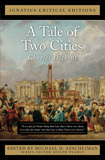
"You only have to look around our society and everything he wrote about in the 1840s is still relevant," said Dickens' biographer, Claire Tomalin.
"The great gulf between the rich and poor, corrupt financiers, corrupt Members of Parliament ... You name it, he said it." ...
"The quality of the writing is part of why we still relate to him today," said Jo Robinson, a graduate student at King's College London who is researching Dickens. "He's an incredibly vivid writer. He has such an array of characters and there's so much to get out of him ... Each generation sees it in their own way."
Part of Dickens' staying power stems from his incredible productivity. An insomniac who often roamed London's streets by night, he wrote more than 20 books, had 10 children, toured the world on lecture tours and campaigned for social change until his death from a stroke in 1870 at the age of 58.
"He believed he knew London better than any person alive, because he spent so much time walking the streets," said Alex Werner, curator of the exhibition "Dickens and London," running at the Museum of London until June.
It might well be an understatement to say that the prolific G. K. Chesterton was a huge admirer of Dickens. One of his first books—Charles Dickens (1906)—was about the novelist; in fact, Chesterton's writings on Dickens are credited with helping firmly establish (or re-establish) Dickens' reputation in the early 20th century. T. S. Eliot, who knew a thing or three about literary criticism, considered Chesterton to be the most perceptive critic of Dickens: "Dickens's 'best novel' is probably Bleak House; that is Mr. Chesterton's opinion, and there is no better critic of Dickens living than Mr. Chesterton". As is always the case with Chesterton, there are numerous quotes to select from, but I'll stick to just two.
The first is about some of the qualities of Dickens' unique genius:
Dickens stands first as a defiant monument of what happens when a great literary genius has a literary taste akin to that of the community. For this kinship was deep and spiritual. Dickens was not like our ordinary demagogues and journalists. Dickens did not write what the people wanted. Dickens wanted what the people wanted. And with this was connected that other fact which must never be forgotten, and which I have more than once insisted on, that Dickens and his school had a hilarious faith in democracy and thought of the service of it as a sacred priesthood. Hence there was this vital point in his popularism, that there was no condescension in it. The belief that the rabble will only read rubbish can be read between the lines of all our contemporary writers, even of those writers whose rubbish the rabble reads. Mr. Fergus 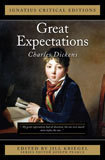 Hume has no more respect for the populace than Mr. George Moore. The only difference lies between those writers who will consent to talk down to the people, and those writers who will not consent to talk down to the people. But Dickens never talked down to the people. He talked up to the people. He approached the people like a deity and poured out his riches and his blood. This is what makes the immortal bond between him and the masses of men. He had not merely produced something they could understand, but he took it seriously, and toiled and agonised to produce it. They were not only enjoying one of the best writers, they were enjoying the best he could do. His raging and sleepless nights, his wild walks in the darkness, his note-books crowded, his nerves in rags, all this extraordinary output was but a fit sacrifice to the ordinary man. He climbed towards the lower classes. He panted upwards on weary wings to reach the heaven of the poor.
Hume has no more respect for the populace than Mr. George Moore. The only difference lies between those writers who will consent to talk down to the people, and those writers who will not consent to talk down to the people. But Dickens never talked down to the people. He talked up to the people. He approached the people like a deity and poured out his riches and his blood. This is what makes the immortal bond between him and the masses of men. He had not merely produced something they could understand, but he took it seriously, and toiled and agonised to produce it. They were not only enjoying one of the best writers, they were enjoying the best he could do. His raging and sleepless nights, his wild walks in the darkness, his note-books crowded, his nerves in rags, all this extraordinary output was but a fit sacrifice to the ordinary man. He climbed towards the lower classes. He panted upwards on weary wings to reach the heaven of the poor.
His power, then, lay in the fact that he expressed with an energy and brilliancy quite uncommon the things close to the common mind. But with this mere phrase, the common mind, we collide with a current error. Commonness and the common mind are now generally spoken of as meaning in some manner inferiority and the inferior mind; the mind of the mere mob. But the common mind means the mind of all the artists and heroes; or else it would not be common. Plato had the common mind; Dante had the common mind; or that mind was not common. Commonness means the quality common to the saint and the sinner, to the philosopher and the fool; and it was this that Dickens grasped and developed. In everybody there is a certain thing that loves babies, that fears death, that likes sunlight that thing enjoys Dickens. And everybody does not mean uneducated crowds; everybody means everybody: everybody means Mrs. Meynell. This lady, a cloistered and fastidious writer, has written one of the best eulogies of Dickens that exist, an essay in praise of his pungent perfection of epithet. And when I say that everybody understands Dickens I do not mean that he is suited to the untaught intelligence. I mean that he is so plain that even scholars can understand him.
The second is about Dickens' place in literary history:
The immortal mind will remain, and by that writers like Dickens will be securely judged. That Dickens will have a high place in permanent literature there is, I imagine, no prig surviving to deny. But though all prediction is in the dark, I would devote this chapter to suggesting that his place in nineteenth-century England will not only be high, but altogether the highest. At a certain period of his contemporary fame, an average Englishman would have said that there were at that moment in England about five or six able and equal novelists. He could have made a list, Dickens, Bulwer Lytton, Thackeray, Charlotte Brontë, George Eliot, perhaps more. Forty years or more have passed and some of them have slipped to a lower place. Some would now say that the highest platform is left to Thackeray and Dickens; some to Dickens, Thackeray, and George Eliot; some to Dickens, Thackeray, and Charlotte Brontë. I venture to offer the proposition that when more years have passed and more weeding has been effected, Dickens will dominate the whole England of the nineteenth century; he will be left on that platform alone.
Volume XV of the Collected Works of G. K. Chesterton contains most (or all? I'm not certain) of Chesterton's writings about Dickens. Alas, it appears to be on back order, and used copies are rather spendy. However, you can find quite a bit of Chesterton's writings here:
Charles Dickens, Part I (1906) -- html (199K) -- text (195K) -- zipfile (75K) -- LibriVox audio book
Charles Dickens, Part II (1906) -- html (189K) -- text (185K) -- zipfile (70K)
Appreciations and Criticisms of the Works of Charles Dickens, Part I (1911) -- html (244K) -- text (240K) -- zipfile (90K)
Appreciations and Criticisms of the Works of Charles Dickens, Part II (1911) -- html (187K) -- text (184K) -- zipfile (68K)
Appreciations and Criticisms of the Works of Charles Dickens (1911). Project Gutenberg edition. -- html (187K) -- text (184K) -- zipfile (68K)
On a personal note, I'm ashamed to admit that I haven't read much by Dickens since my late teens. I read David Copperfield and Oliver Twist in fifth grade (on my own, unabridged; I can hardly fathom it now), inspired by seeing the musical, Oliver!, when I was in fourth grade. Then, in high school, I read The Christmas Carol, The Old Curiosity Shop, A Tale of Two Cities, and Great Expectations. The latter two, I'm happy to say, are part of the Ignatius Critical Editons family:
• A Tale of Two Cities, edited by Michael D. Aeschliman (Professor of Education at Boston University, Professor of English at the University of Italian Switzerland)
• Great Expectations, edited by Jill Kriegel (PhD English, Palm Beach Atlantic University; instructor, St. Joseph's Catholic School, Greenville, SC.) Also available in Electronic Book Format and as a Downloadable Audio File.
Twenty-first Century Recusants

Twenty-first Century Recusants | Matthew Cullinan Hoffman | Catholic World Report
Obama administration's contraceptive mandate evokes bitter memories of past persecution.
The Obama administration's recent decision to require Catholic institutions to provide contraceptives through their health care plans has been met with firm resistance from Catholic leaders, and incredulity even from the president's own supporters, who warn that the administration is walking into a political minefield.
"One of Barack Obama's great attractions as a presidential candidate was his sensitivity to the feelings and intellectual concerns of religious believers," writes the Washington Post's E.J. Dionne. "That is why it is so remarkable that he utterly botched the admittedly difficult question of how contraceptive services should be treated under the new health care law." The president "threw his progressive Catholic allies under the bus," he adds.
The president's allies in the press, who share his socially liberal love of all things contraceptive, have good reason to be concerned about the administration's Quixotic jab at the Catholic Church. The president has managed to offend the religious sensibilities of the largest voting bloc in the United States, and is evoking bitter memories of historic persecution in the process.
Intentionally or not, the administration's policy smacks of the methods established by England's Queen Elizabeth against Catholic "recusants," who refused to participate in the worship services of the Anglican Church during the late 16th century.
The Holy Father's 2012 Lenten Message focuses on the virtue of charity
From Vatican Information Service:
VATICAN CITY, 7 FEB 2012 (VIS) - Made public today was the 2012 Lenten Message of the Holy Father Benedict XVI, the title of which is taken from the Letter to the Hebrews: "Let us be concerned for each other, to stir a response in love and good works". Extracts from the English-language version of the document are given below:
"The Lenten season offers us once again an opportunity to reflect upon the very heart of Christian life: charity. This is a favourable time to renew our journey of faith, both as individuals and as a community, with the help of the word of God and the Sacraments".
"This year I would like to propose a few thoughts in the light of a brief biblical passage drawn from the Letter to the Hebrews: 'Let us be concerned for each other, to stir a response in love and good works'".
(1) Let us be concerned for each other: responsibility towards our brothers and sisters.
"This first aspect is an invitation to be 'concerned'. ... The verb which introduces our exhortation tells us to look at others, first of all at Jesus, to be concerned for one another, and not to remain isolated and indifferent to the fate of our brothers and sisters. All too often, however, our attitude is just the opposite: an indifference and disinterest born of selfishness and masked as a respect for 'privacy'. ... Even today God asks us to be 'guardians' of our brothers and sisters, to establish relationships based on mutual consideration and attentiveness to the well-being, the integral well-being of others. The great commandment of love for one another demands that we acknowledge our responsibility towards those who, like ourselves, are creatures and children of God. Being brothers and sisters in humanity and, in many cases, also in the faith, should help us to recognise in others a true alter ego, infinitely loved by the Lord. If we cultivate this way of seeing others as our brothers and sisters, solidarity, justice, mercy and compassion will naturally well up in our hearts".
"Concern for others entails desiring what is good for them from every point of view: physical, moral and spiritual. Contemporary culture seems to have lost the sense of good and evil, yet there is a real need to reaffirm that good does exist and will prevail, because God is 'generous and acts generously'. The good is whatever gives, protects and promotes life, brotherhood and communion. Responsibility towards others thus means desiring and working for the good of others, in the hope that they too will become receptive to goodness and its demands. Concern for others means being aware of their needs. Sacred Scripture warns us of the danger that our hearts can become hardened by a sort of 'spiritual anaesthesia' which numbs us to the suffering of others. The Evangelist Luke relates two of Jesus' parables by way of example": the parable of the Good Samaritan and the parable of Dives and Lazarus. Both "show examples of the opposite of 'being concerned', of looking upon others with love and compassion. What hinders this humane and loving gaze towards our brothers and sisters? Often it is the possession of material riches and a sense of sufficiency, but it can also be the tendency to put our own interests and problems above all else. We should never be incapable of 'showing mercy' towards those who suffer. Our hearts should never be so wrapped up in our affairs and problems that they fail to hear the cry of the poor. ... Reaching out to others and opening our hearts to their needs can become an opportunity for salvation and blessedness.
"'Being concerned for each other' also entails being concerned for their spiritual well-being. Here I would like to mention an aspect of the Christian life, which I believe has been quite forgotten: fraternal correction in view of eternal salvation. Today, in general, we are very sensitive to the idea of charity and caring about the physical and material well-being of others, but almost completely silent about our spiritual responsibility towards our brothers and sisters. This was not the case in the early Church. ... Christ Himself commands us to admonish a brother who is committing a sin. ... The Church's tradition has included 'admonishing sinners' among the spiritual works of mercy. It is important to recover this dimension of Christian charity. We must not remain silent before evil. I am thinking of all those Christians who, out of human regard or purely personal convenience, adapt to the prevailing mentality, rather than warning their brothers and sisters against ways of thinking and acting that are contrary to the truth and that do not follow the path of goodness. Christian admonishment, for its part, is never motivated by a spirit of accusation or recrimination. It is always moved by love and mercy, and springs from genuine concern for the good of the other. ... In a world pervaded by individualism, it is essential to rediscover the importance of fraternal correction, so that together we may journey towards holiness. ... It is a great service, then, to help others and allow them to help us, so that we can be open to the whole truth about ourselves, improve our lives and walk more uprightly in the Lord's ways".
(2) Being concerned for each other: the gift of reciprocity.
"This 'custody' of others is in contrast to a mentality that, by reducing life exclusively to its earthly dimension, fails to see it in an eschatological perspective and accepts any moral choice in the name of personal freedom. A society like ours can become blind to physical sufferings and to the spiritual and moral demands of life. This must not be the case in the Christian community!"
"The Lord's disciples, united with Him through the Eucharist, live in a fellowship that binds them one to another as members of a single body. This means that the other is part of me, and that his or her life, his or her salvation, concern my own life and salvation. Here we touch upon a profound aspect of communion: our existence is related to that of others, for better or for worse. Both our sins and our acts of love have a social dimension. This reciprocity is seen in the Church, the mystical body of Christ: the community constantly does penance and asks for the forgiveness of the sins of its members, but also unfailingly rejoices in the examples of virtue and charity present in her midst. ... Christians can also express their membership in the one body which is the Church through concrete concern for the poorest of the poor. Concern for one another likewise means acknowledging the good that the Lord is doing in others".
(3) To stir a response in love and good works: walking together in holiness.
"These words of the Letter to the Hebrews urge us to reflect on the universal call to holiness. ... The time granted us in this life is precious for discerning and performing good works in the love of God. In this way the Church herself continuously grows towards the full maturity of Christ. Our exhortation to encourage one another to attain the fullness of love and good works is situated in this dynamic prospect of growth.
"Sadly, there is always the temptation to become lukewarm, to quench the Spirit, to refuse to invest the talents we have received, for our own good and for the good of others. All of us have received spiritual or material riches meant to be used for the fulfilment of God's plan, for the good of the Church and for our personal salvation. The spiritual masters remind us that in the life of faith those who do not advance inevitably regress".
"In a world which demands of Christians a renewed witness of love and fidelity to the Lord, may all of us feel the urgent need to anticipate one another in charity, service and good works. This appeal is particularly pressing in this holy season of preparation for Easter".
Carl E. Olson's Blog
- Carl E. Olson's profile
- 20 followers



